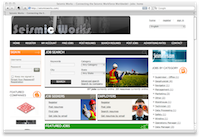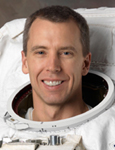The new reality
/In Calgary last week I heard the phrase "when the industry recovers" several times. Dean Potter even went so far as to say:
“Don’t believe anyone who says ‘It’s different this time’. It isn’t.”
He knows what he's talking about — the guy sold his company to Vermillion in 2014 for $427 million.
But I think he's dead wrong.
What's different this time?
A complete, or at least non-glacially-slow, recovery seems profoundly unlikely to me. We might possibly be through the 'everything burns to the ground' phase, but the frenzy of mergers and takeovers has barely started. That will take at least a couple of years. If and when any stability returns to operations, it seems highly probable that it will have these features:
- It will be focused on shale. (Look at the Permian Basin today.)
- It will need fewer geoscientists. (There are fewer geological risks.)
- It will be driven by data. (We have barely started on this.)
- It will end in another crash. (Hungry animals bolt their food.)
If you're a geoscientist and have never worked find-grained plays, I think the opportunities in front of you are going to be different from the ones you're used to. And by 'different', I mean 'scarcer'.
Where else can you look?
It may be time to think about a pivot, if you haven't already. (Pivot is lean-startup jargon for 'plan B' (or C). And I don't think it's a bad idea to think of yourself, or any business, as a start-up. Indeed, if you don't, you're headed for obsolescence.)
What would you pivot to? What's your plan B? If you think of petroleum geoscience as having a position in a matrix, think about our neighbours in that matrix. Industries are vertical; disciplines are horizontal.
Opportunities in neighbouring cells are probably within relatively easy reach. Think about:
- Near surface: archaeology, UXO detection, engineering geophysics.
- Geomatics, remote sensing, and geospatial analysis. Perhaps in mining or geothermal energy.
- Stepping out of industry into education or government. People with applied knowledge have a lot to offer.
- Making contacts in a new industry like finance or medicine. Tip: go to a conference. Talk to everyone you can find.
Think about your technical skills more broadly
I don't know where those new opportunities will come from, but I think it only takes a small shift in perspective to spot them. Think of your purpose, not your tasks. For example:
- Many geophysicists are great quantitative scientists. If you know linear algebra or geostatistics and write code too, you have much sought-after skills in any industry.
- Many geologists are great at spatial analysis. If you can wield geodatabases and GIS software like a wizard, you are a valuable asset to any industry.
- Many engineers are great at project management and analytics. If you have broken out of Excel and can drive Spotfire or Tableau, you are gold in any industry.
If you forgot to keep your skills up to date and are locked into clicking buttons in Petrel, or making PowerPoint maps of the Cardium, or fiddling with charts in Excel, I'm not sure what to tell you. Everyone has those skills. You're yesterday's geoscientist and you don't have a second to lose.















 Except where noted, this content is licensed
Except where noted, this content is licensed